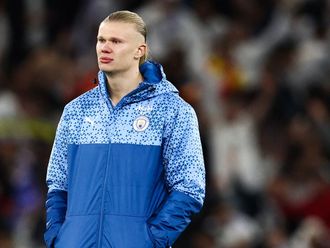Riyadh: Record ten-time champions Kuwait have dominated the 44-year history of the Gulf Cup.
They are one of just three sides — the others being Qatar and Bahrain — to have played all 21 editions since the tournament’s inception in 1970.
However, just one of The Blues’ ten victories has come since the competition switched from league to tournament format in 2004. And this either proves the other teams have played catch up, or Kuwait have struggled with the stress of knockout football.
Indeed, no side has retained the title since the format changed and only the UAE have won it more than once since the transition was made.
Despite Saudi Arabia and Iraq sharing overall second place behind Kuwait in the most wins stakes with three titles apiece, the Lions of Mesopotamia should take the honour ahead of Saudi based on better consistency.
Iraq have only featured in 12 tournaments, having been banned from competing for political reasons from 1991 to 2003, but despite that slim window of opportunity they’ve still recorded three wins and two runners-up spots.
While Kuwait can boast the most all-time goals with 181 in 99 appearances, with a goal-to-game ratio of 1.83, Iraq’s 95 goals from 50 appearances makes for the highest average of any team with 2.13.
Kuwait produced the tournament’s all-time highest scorer in Jassem Yaqoub with 18 goals and they have claimed or shared the competition’s golden boot — for the player with the most goals in a tournament — on a record nine occasions.
They also hold the record for the biggest winning margin and team with the most goals per game with an 8-0 thrashing of Oman in 1976, while Jassem Al Huwaidi shares the record for the player with the most goals in a game with Saudi’s Majed Abdullah on five.
That aside, Iraq are just as cemented in the history books, a fact made even more impressive given their years in absentia.
Their Hussain Saeed not only holds the record for the most goals in a tournament with 10 in 1979, but he also shares second position in the all-time top scorer’s charts with Abdullah on 17. The Lions also share second in the list of most golden boot awardees on five alongside the UAE.
By comparison, Saudi, who are regional powerhouses based on their superior World and Asian Cup appearances and form, have been comparatively frustrated in past Gulf Cups, with just three wins and an astonishing six seconds and six third-place finishes in 20 appearances.
UAE and Qatar represent the most recent threat to authority, with two wins apiece, and Oman come a close second with one victory.
Bahrain and Yemen are yet to get off the mark, a concern that should be most pressing for the Bahrainis given that they, like Kuwait and Qatar, have been ever present. Yemen, on the other hand, only joined the format in 2003 and have yet to progress beyond the group stages in six attempts.












